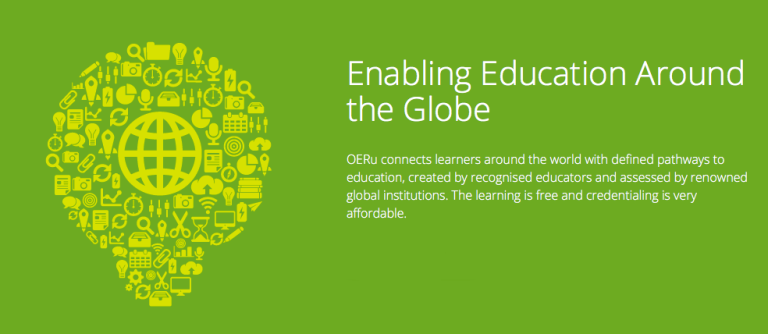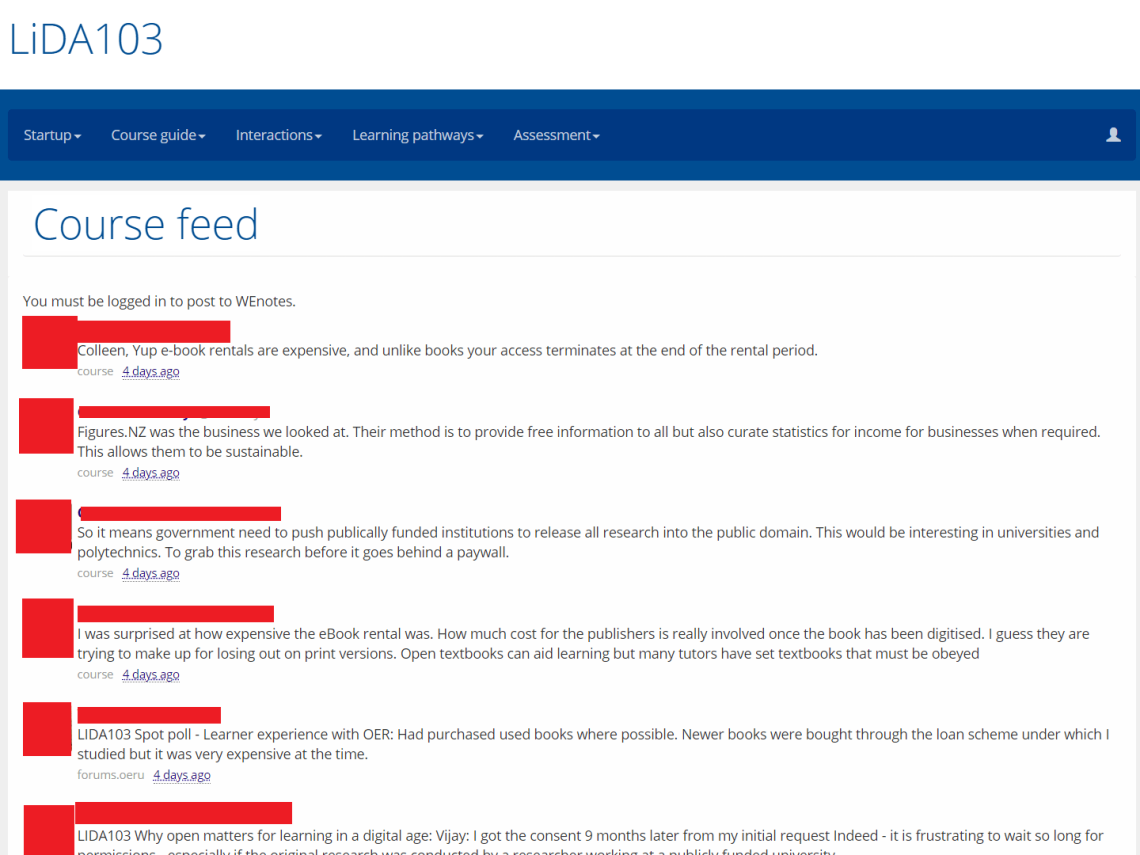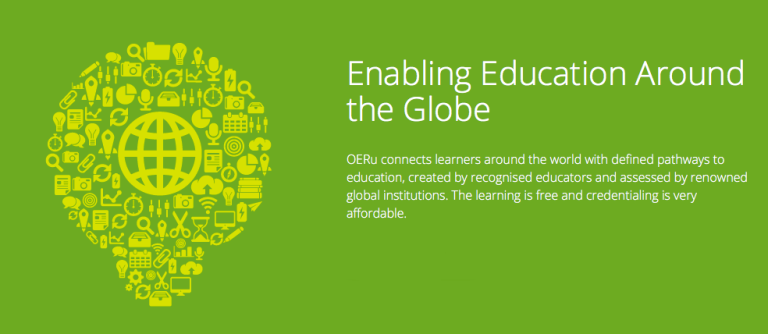
Edit: This posts previously stated that LiDA104 would start on May 30th. LiDA104 is scheduled to start on June 13th, but being an open course, you can progress through the course anytime.
Note: This post is about my participation in the micro-course “Open Education, Licensing and Copyright in the Digital World (LiDA103)”, which itself is part of the Learning in the Digital Age course. A broader post on my views on Open Education will be published later.
Last week, I participated in an open micro-course titled “Open Education, Licensing and Copyright in the Digital World”. The micro-course is the third installment on a series of four micro-courses comprising the Learning in a Digital Age course. It is offered by the Open Educational Resources University (OERu), and coordinated mainly by Wayne Makintosh, director of the OER Foundation and OER chariman for UNESCO.
The other micro-courses that conform LiDA are:
- Digital Literacies for Online Learning (LiDA101)
- Digital Citizenship (LiDA102)
- Open Education, Licensing and Copyright in the Digital World (LiDA103)
- Critical Media Literacies and Associated Skills (LiDA104)
I won’t dive fully into explaining how OERu works, but essentially, all the content is provided for free, without the need of any registration. There is a small fee only if you wish to undertake an evaluation of your knowledge about the content. A positive evaluation renders formal academic credit from an official university. Since I opted out of the evaluation (and didn’t even finish the course), I don’t feel qualified to keep blabbing about the accreditation system, but overall it seems like a just and transparent exchange: we get free content, and are only billed for the evaluation and validation process through an officially-recognized institution.
The micro-course, which lasted two weeks, touched on the definitions of open education, the setbacks of copyright laws, the alternative of the Creative Commons Licenses and an exploration into the dimensions of openness experienced in the educational field. All of them crucial topics to understand how openness towards free sharing of knowledge and works could be beneficial for any educational system or institution.
There were many positive points over my short experience with LiDA103, but I’ll focus the rest of this post to write about the feature I enjoyed the most: the course feed. The feed is powered by WEnotes (WikiEducator notes). Courses from OERu are hosted within WikiEducator’s platform so WEnotes allow micro-blogging within most OERu courses. These are short posts (think Twitter-short) that can be input from several pages related to the course. The course feed aggregates all these micro-posts creating streamlined conversations between the participating members. Below, you can find a screenshot I took from the LiDA103 course feed:

The course itself is structured similarly to many other online courses, with several “learning paths” that work as the equivalent to a chapter or a session. Each path aggregates several pages of content: videos, text, images. However, the addition of WEnotes allows the user to create inputs more frequently. This is important because the course pushes the user to personally reflect on every piece of content presented. Each piece of content is accompanied by a space to type a WEnote and some questions to open up the discussion. WEnotes can also be typed directly in the course feed page, which comes handy for quick discussions between several users.
The major setback of this system is that it can sometimes be hard to read. The course feed aggregates the WEnotes based on when they were input, this means that you could get a reflection about copyright next to one about the dimensions of openness. The feed also aggregates content from the course’s Mastodon channel (the open-sourced, decentralized and civilized equivalent to Twitter), which makes things even more confusing. It’s not really a big deal, though. One can learn quickly to read and answer within the course feed. I especially prefer it over forums, the traditional approach to user interaction within online courses. The feed feels like a merge between a forum and a chat. And with small audiences, it works very well.
Overall, the WEnotes better the experience of participating in an online course. It allows constant and instant reflection on the content, and it creates streamlined conversations between several members and several topics.
Cheerfully, my good experience with LiDA103 has inclined me into following LiDA104 course on Critical Media Literacies, which starts on June 13th and is accessible here.
I dare you to register and follow the course with us.
Thanks for joining!


Richard Poynder: mentioned this in plus.google.com/ RichardPoynder/posts/gkrtNK5U7Ac. via plus.google.com
LikeLike